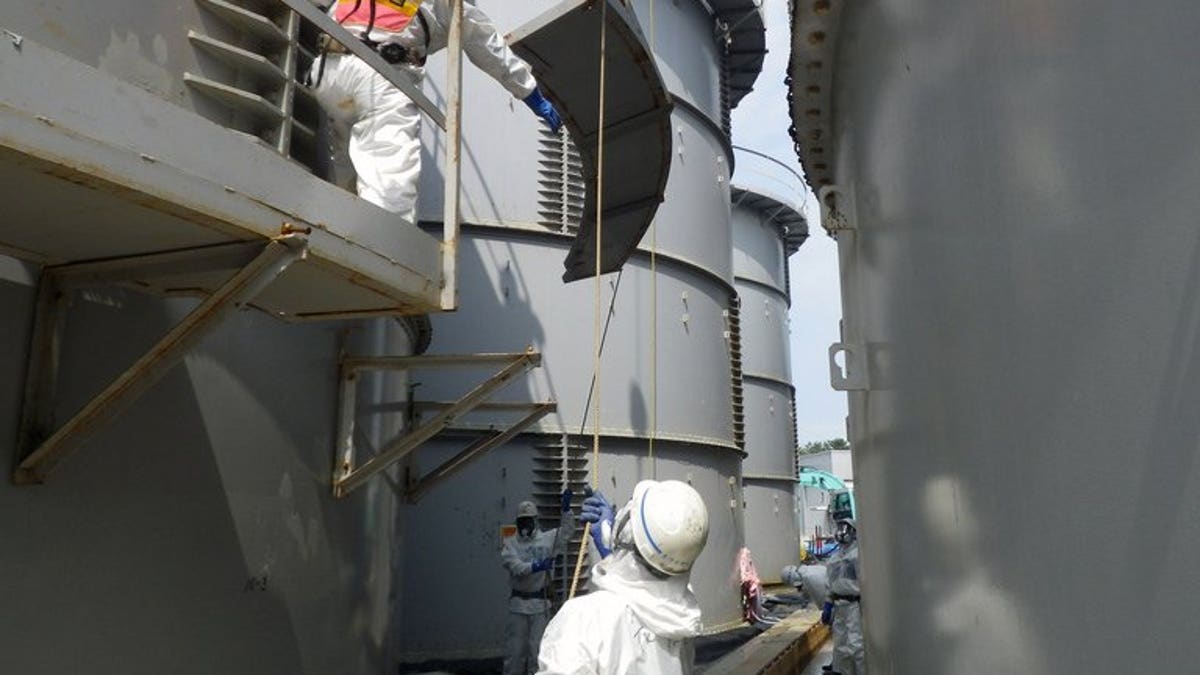
Workers prepare to take apart a contamination water tank at the Fukushima Dai-ichi nuclear plant in Okuma, Japan, in a photo by Tokyo Electric Power Co (TEPCO) on September 13, 2013. Japan's nuclear authority plans to conduct radiation contamination surveys at 600,000 points on the seabed off the crippled Fukushima nuclear plant, up from 200 places so far, a report said Saturday. (TEPCO/AFP)
TOKYO (AFP) – Japan's nuclear authority plans to conduct radiation contamination surveys at 600,000 points on the seabed off the crippled Fukushima nuclear plant, up from 200 places so far, a report said Saturday.
The Nuclear Regulation Authority is to survey the spots in a 1,000 square-kilometre (about 385 square-mile) area stretching 50 kilometres north-south and 20 kilometres east-west off Fukushima, the Yomiuri newspaper said.
The survey is to measure caesium levels to assess the long-term effect on marine resources of radiation that has been leaking from the stricken plant since it was struck by a tsunami in 2011, the daily said.
No immediate comment was available from the authority on Saturday.
Tokyo Electric Power (TEPCO) has been struggling to contain contaminated water at the plant.
It has poured thousands of tonnes of water on the plant's reactors to tame meltdowns sparked by the quake-tsunami disaster.
The utility says the reactors are now stable but need to be kept cool to prevent them running out of control again.
Much of the now-contaminated water is being stored in temporary tanks at the plant, and TEPCO has so far revealed no clear plan for it.
The problem has been worsened by leaks in some of the tanks that are believed to have seeped into groundwater, which runs out to sea.
The continuing nuclear catastrophe at Fukushima has come under the international spotlight in recent weeks as Tokyo fought off challenges from Madrid and Istanbul for the right to host the 2020 Games.
South Korea has banned imports of fisheries products from Fukushima and seven other Japanese prefectures over fears of contamination.







































